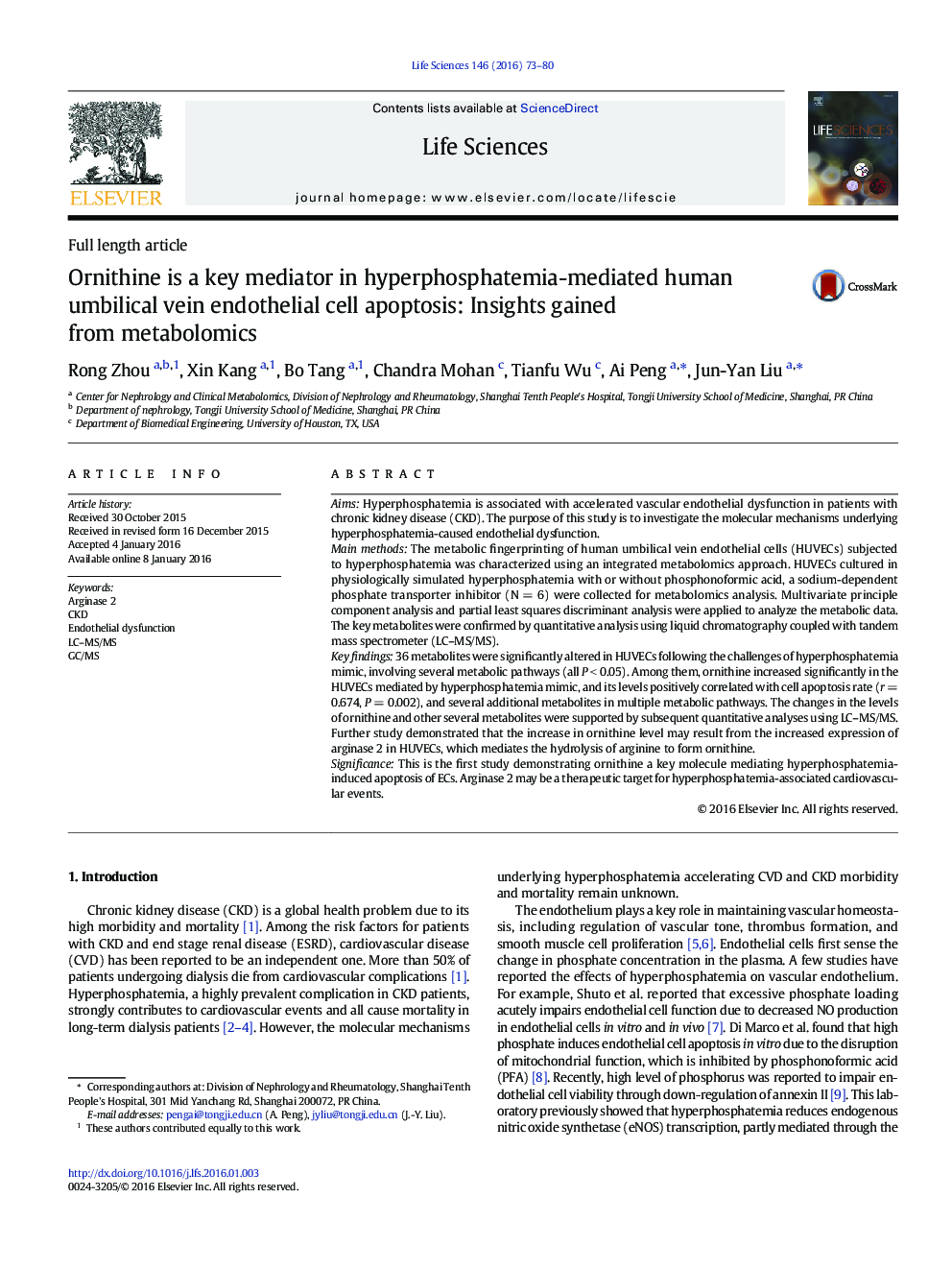| Article ID | Journal | Published Year | Pages | File Type |
|---|---|---|---|---|
| 2550669 | Life Sciences | 2016 | 8 Pages |
AimsHyperphosphatemia is associated with accelerated vascular endothelial dysfunction in patients with chronic kidney disease (CKD). The purpose of this study is to investigate the molecular mechanisms underlying hyperphosphatemia-caused endothelial dysfunction.Main methodsThe metabolic fingerprinting of human umbilical vein endothelial cells (HUVECs) subjected to hyperphosphatemia was characterized using an integrated metabolomics approach. HUVECs cultured in physiologically simulated hyperphosphatemia with or without phosphonoformic acid, a sodium-dependent phosphate transporter inhibitor (N = 6) were collected for metabolomics analysis. Multivariate principle component analysis and partial least squares discriminant analysis were applied to analyze the metabolic data. The key metabolites were confirmed by quantitative analysis using liquid chromatography coupled with tandem mass spectrometer (LC–MS/MS).Key findings36 metabolites were significantly altered in HUVECs following the challenges of hyperphosphatemia mimic, involving several metabolic pathways (all P < 0.05). Among them, ornithine increased significantly in the HUVECs mediated by hyperphosphatemia mimic, and its levels positively correlated with cell apoptosis rate (r = 0.674, P = 0.002), and several additional metabolites in multiple metabolic pathways. The changes in the levels of ornithine and other several metabolites were supported by subsequent quantitative analyses using LC–MS/MS. Further study demonstrated that the increase in ornithine level may result from the increased expression of arginase 2 in HUVECs, which mediates the hydrolysis of arginine to form ornithine.SignificanceThis is the first study demonstrating ornithine a key molecule mediating hyperphosphatemia-induced apoptosis of ECs. Arginase 2 may be a therapeutic target for hyperphosphatemia-associated cardiovascular events.
